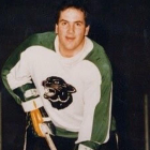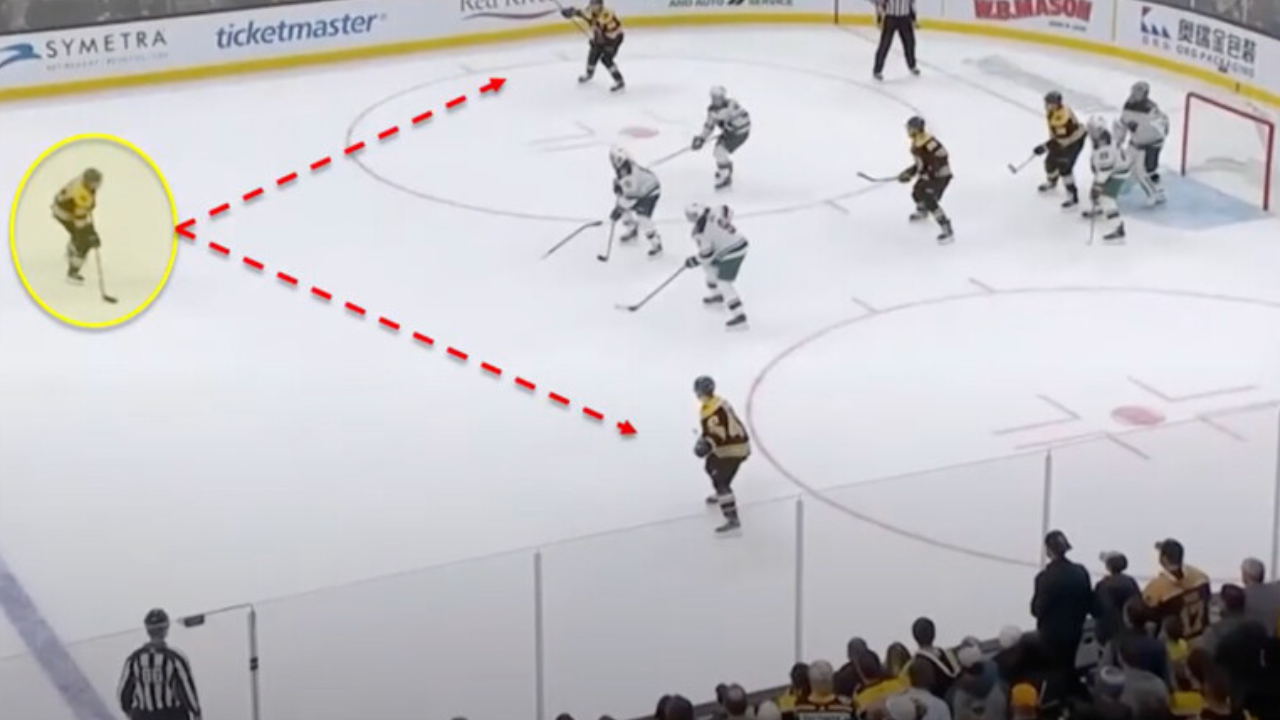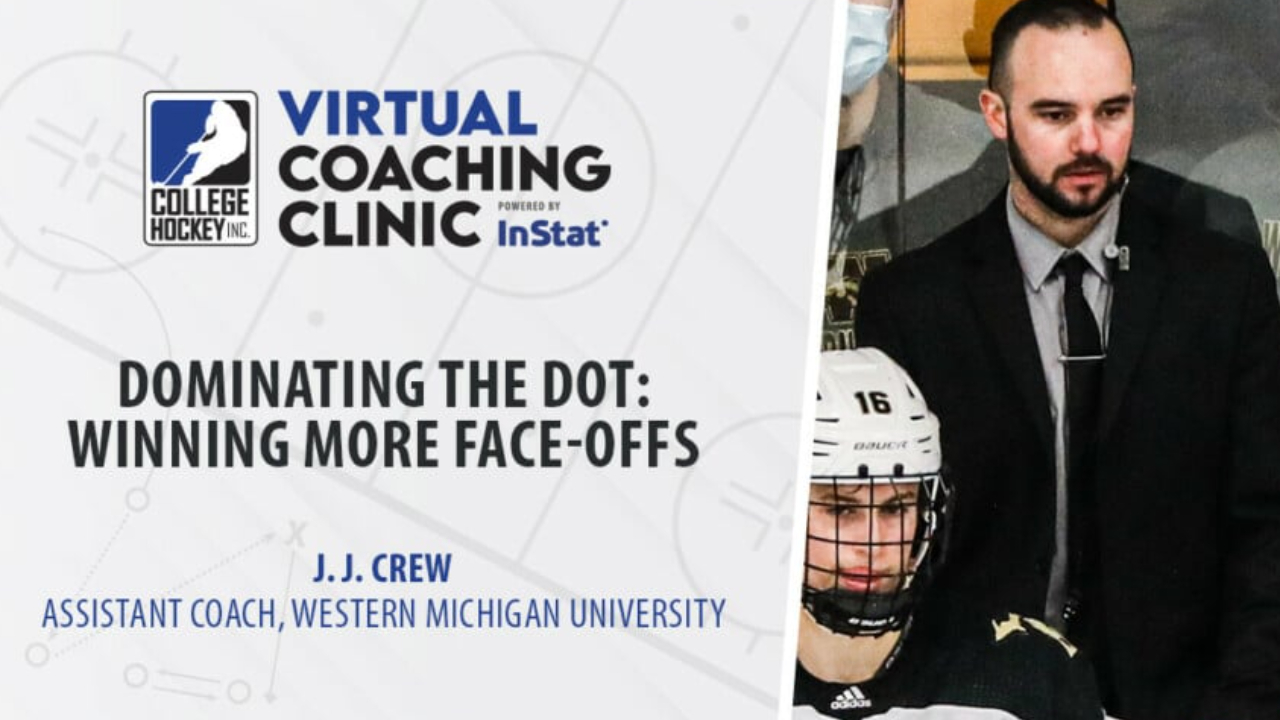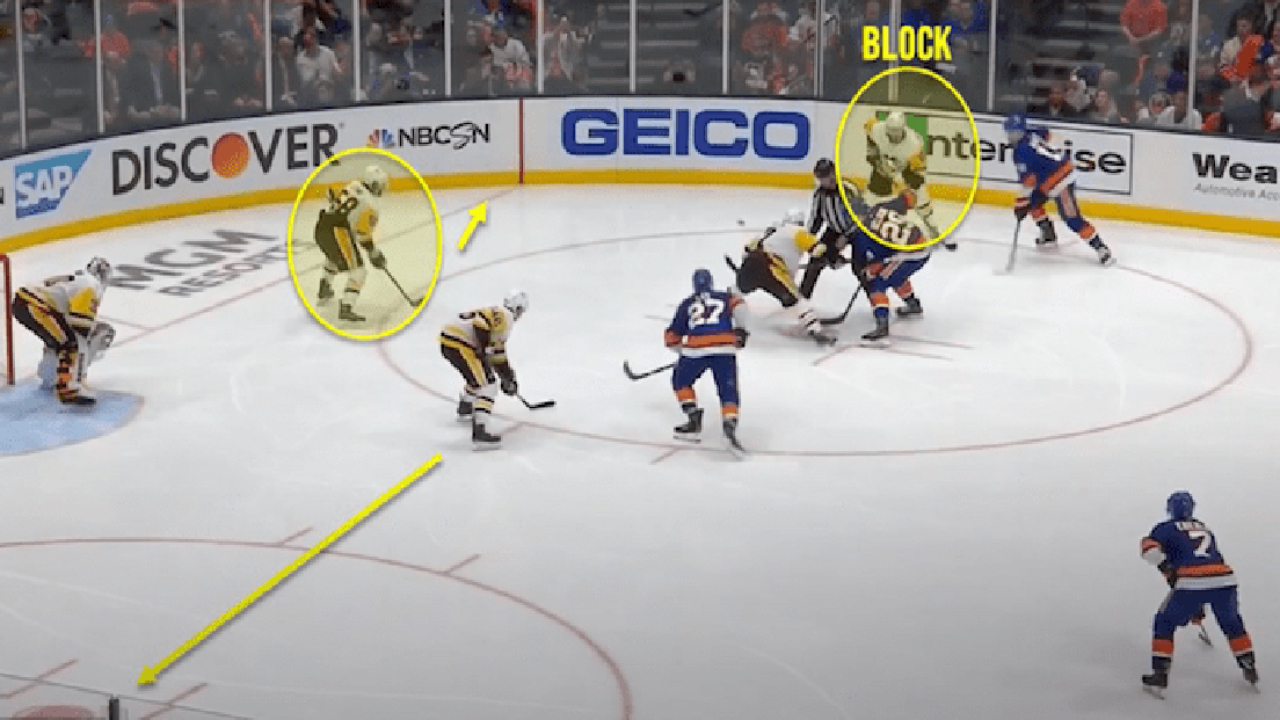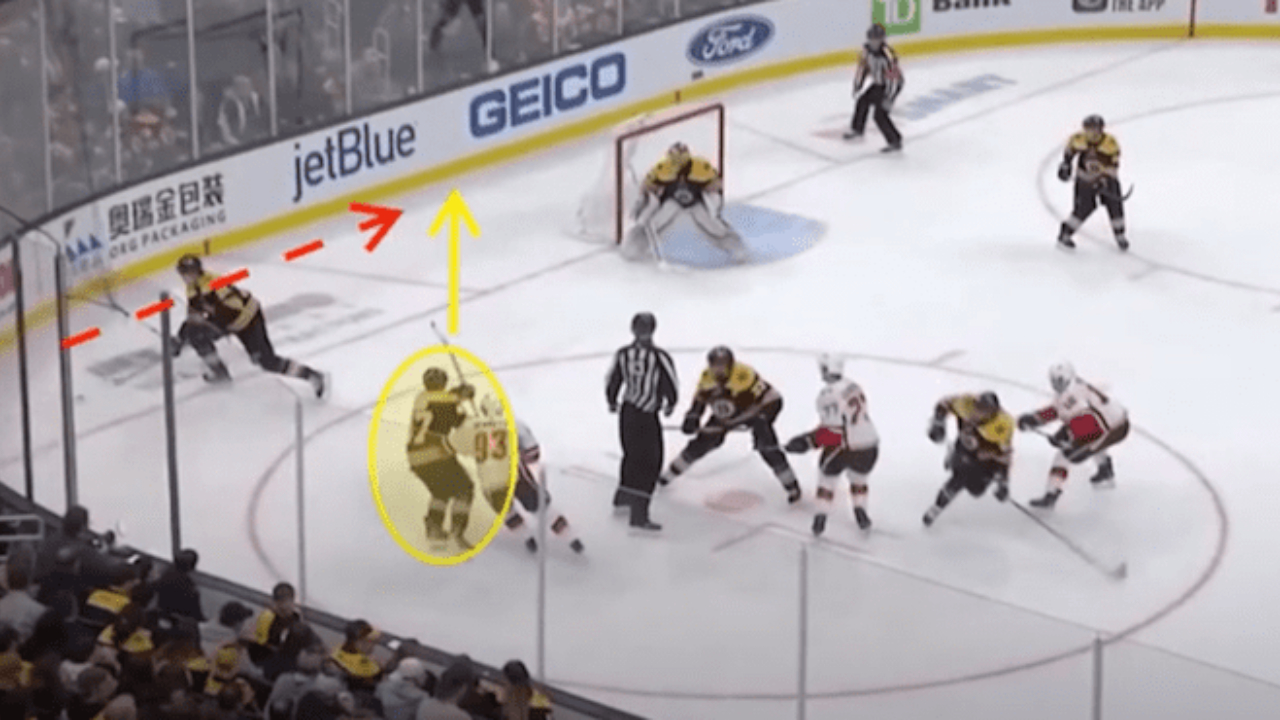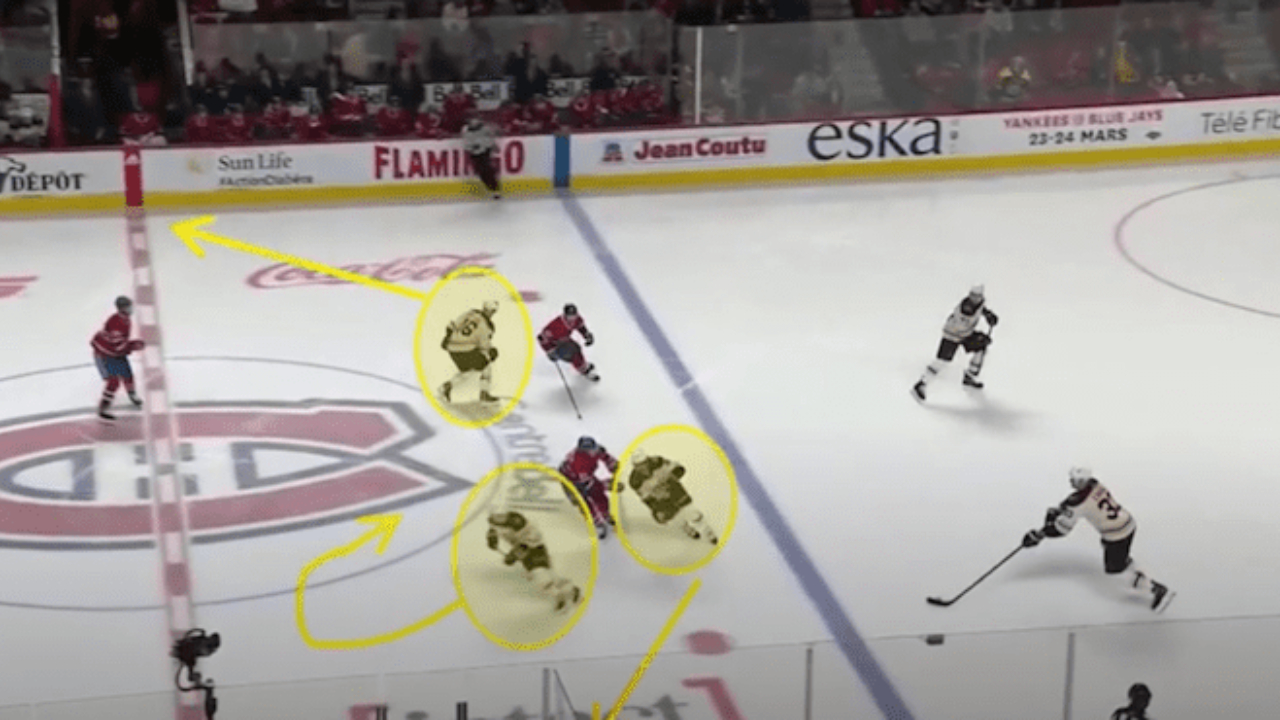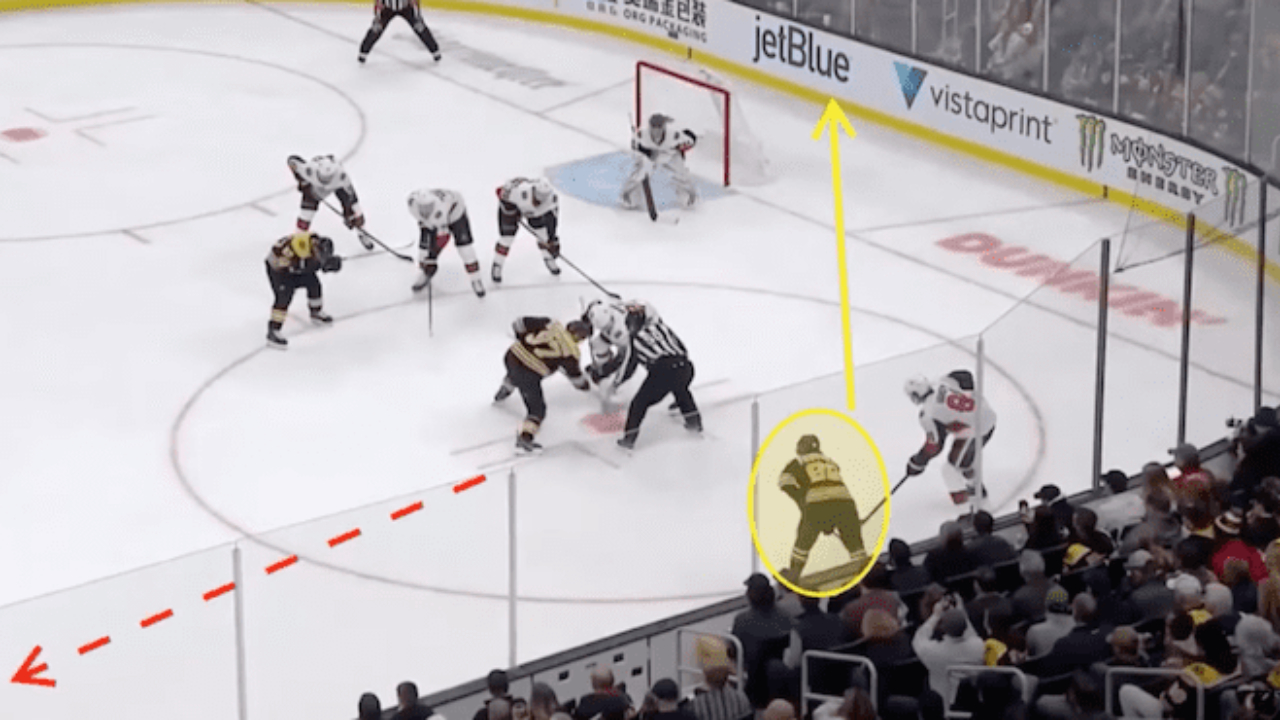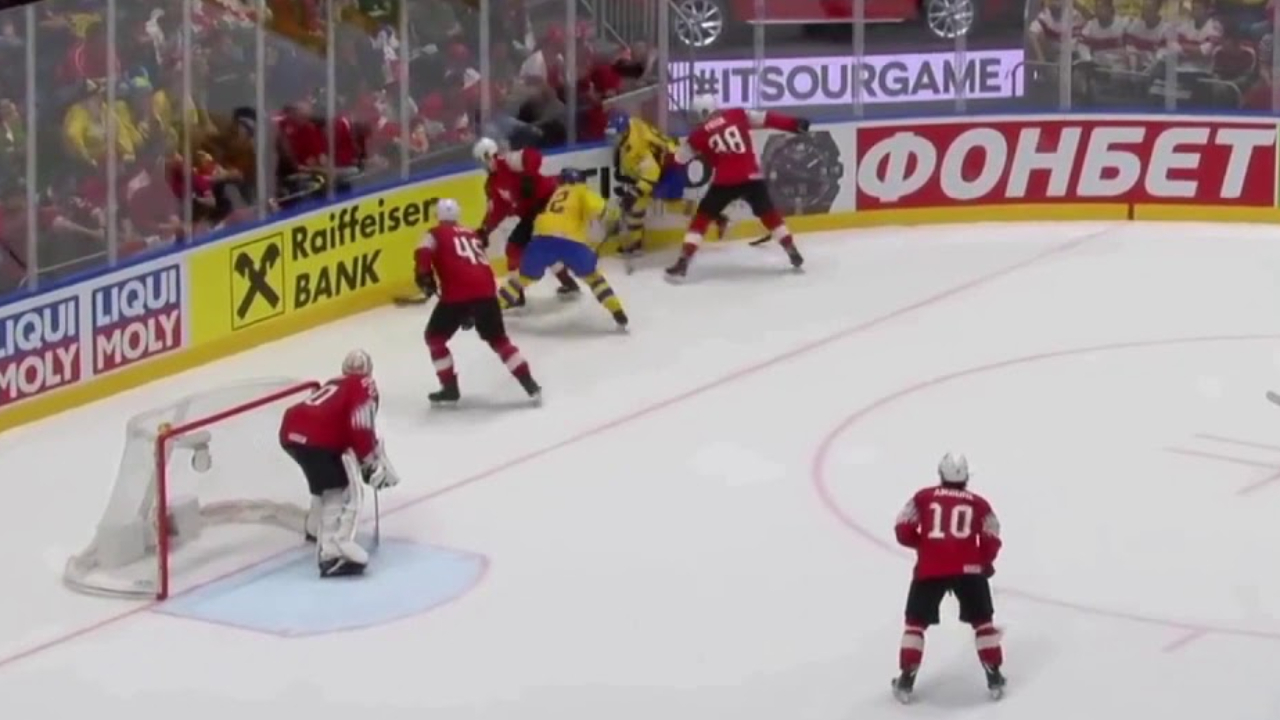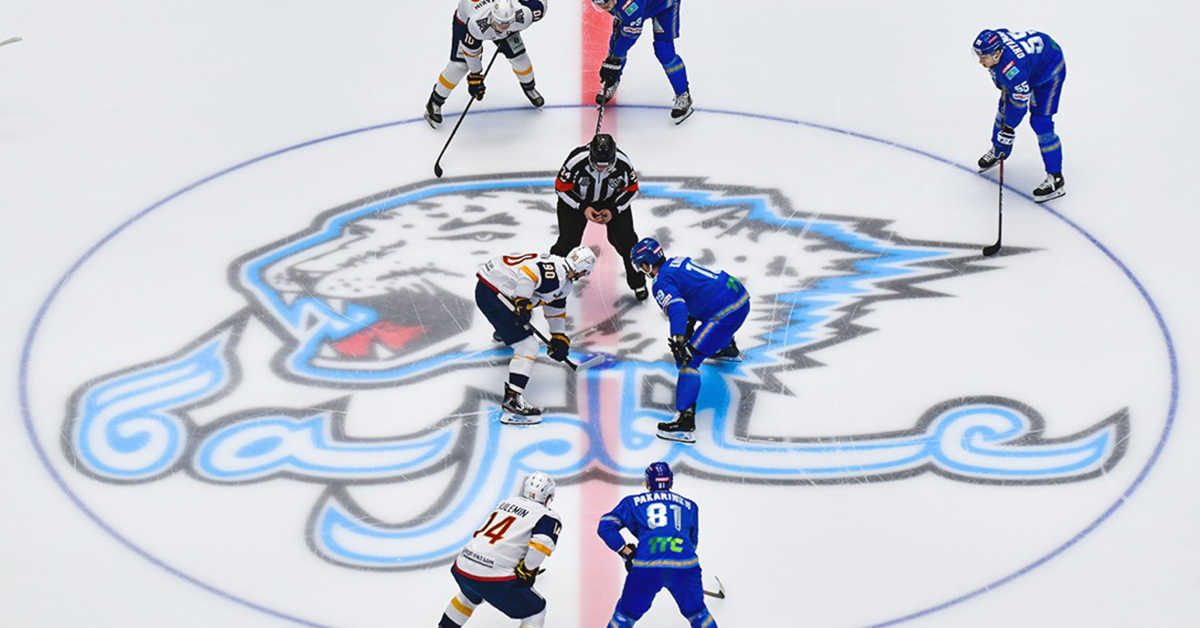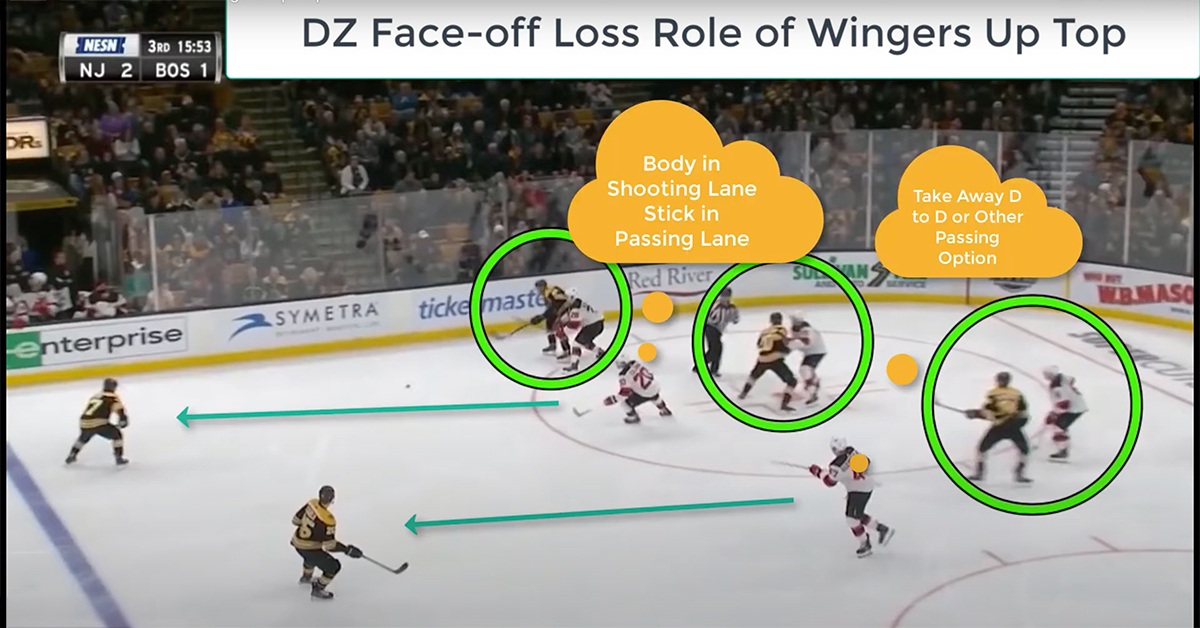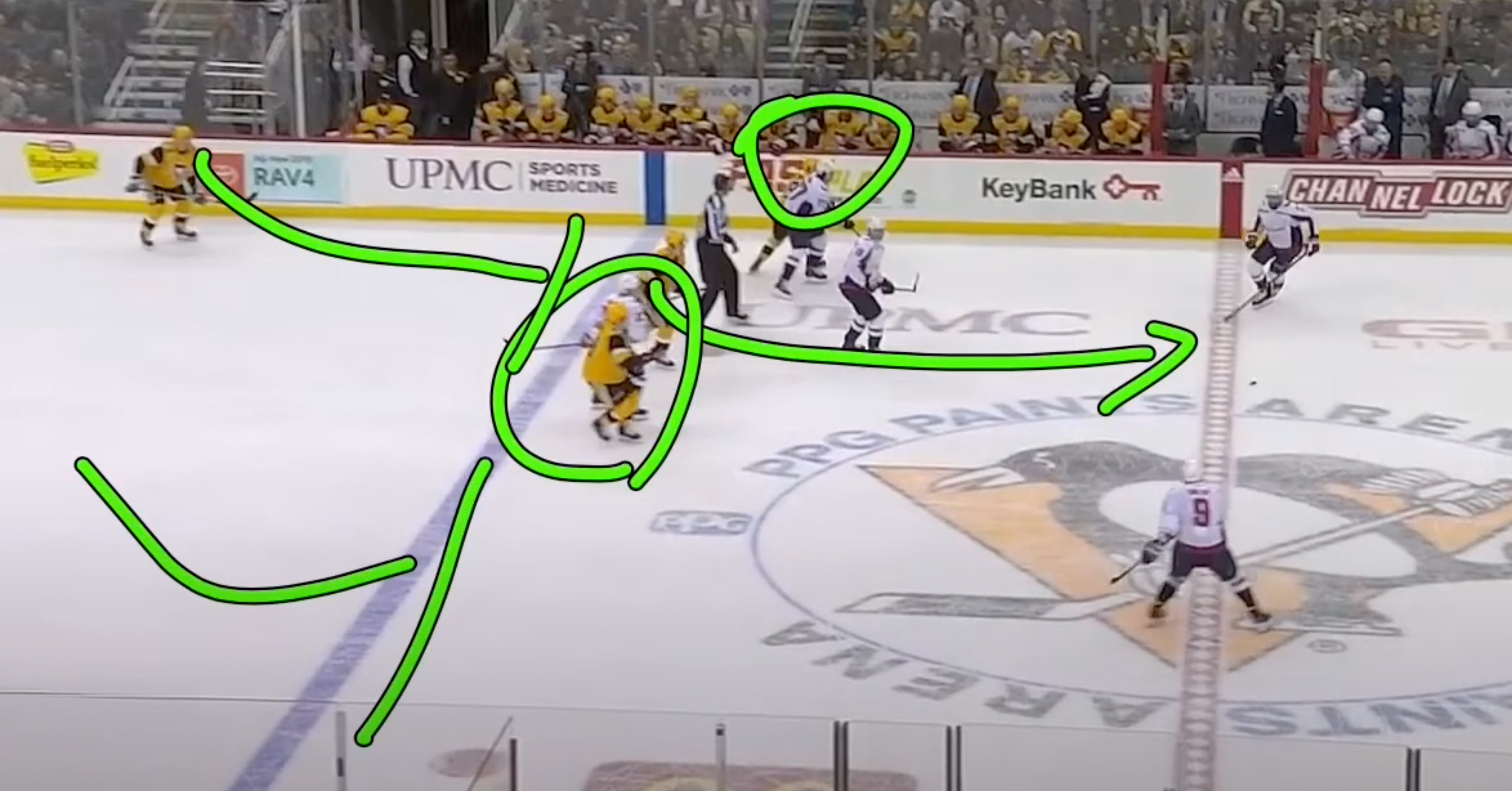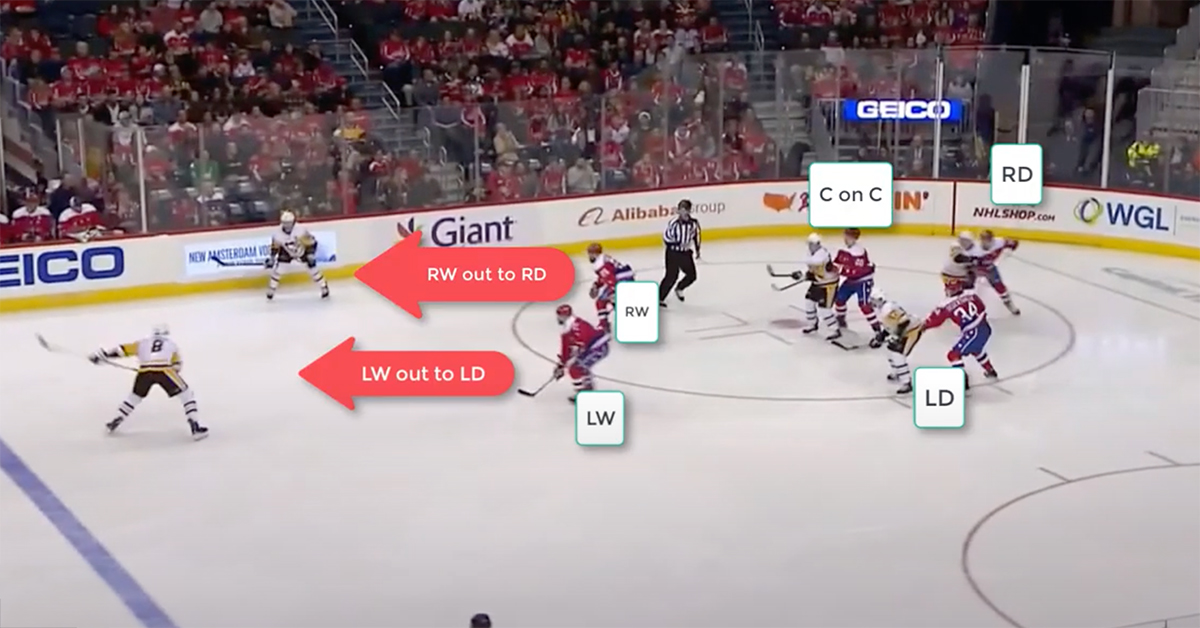
Face-offs are an important part of the game. When you lose a face off in the Defensive Zone the puck can end up in your net within seconds. Face-off strategy, skills and tactics are generally under coached in competitive minor hockey and this needs to change to support players in their development. Face-offs are important to winning the puck possession and control game and every good team is looking for players who have strong skills and abilities in their execution of face-off play.
No player should step into a face off circle, especially in the defensive zone, without knowing their role and how to execute their role in a face-off win or loss situation. Every defensive player must know their role on a DZ win situation to exit the zone and in a loss situation on who to cover and how to defend the other team.
The short video clip below shows the Washington Capitals defending a defensive zone face off loss situation. Clearly, every player knows their role and how to execute their role to prevent being scored upon and to regain puck possession and control.
In this clip the bottom 3 Capitals Defenders get into man coverage with the Center locking down the opponent’s Centre and the two Defensemen locking down on the opponent’s Wingers. The Capitals bottom 3 don’t allow their opponents to get between them and their goalie, play stick on stick and don’t allow the Forwards to get into position to get a stick on puck deflection or rebound opportunity. The Capitals two Wingers are out to the points to hurry or block a point shot and prevent the opponent’s D from making a quality play with the puck from above the hash marks.
Recommendations for Players:
- Study video for examples of good face-off play to learn what strategy, tactics and skills you must develop to make this a strong part of your game.
- Talk with Coach about your role and how to execute in face-off win/loss situations in all three zones.
- Practice your face-off draws as a Centre and Winger to get your success draw rate at 60%. That’s right as a Winger because sometimes the Centre gets tossed.
- Communicate as a group so every player on your team knows their role before stepping into the circle.
